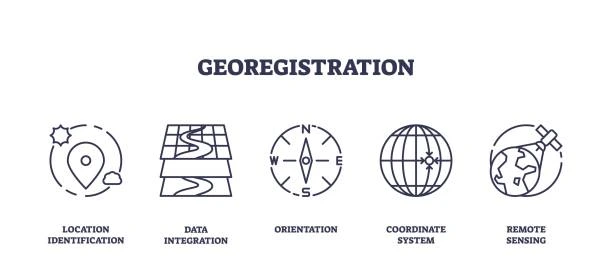Course Overview
Monitoring and Evaluation helps in collecting, analyzing and transforming health data into strategic information for informed decision making, improved effectiveness and enhanced advocacy in health programs. M&E will help to ensure that health programs are implemented as planned and to assess whether desired results are being achieved.
This course aims to build the capacity of M&E professionals working in the health sector. The acquired M&E skills will assist the participants to improve health program planning and performance management and enhance the institutionalization of the collection of health-related data and the analysis of program impact. The main topics covered include the development of monitoring and evaluation for population, health and nutrition interventions (e.g. HIV and AIDS, STDs, TB, maternal health, family planning, child health and reproductive health).
Course Duration
10 Days
Who Should Attend
- M&E specialists and officers
- Health program managers and coordinators
- Data managers and analysts
- Public health professionals
- Researchers and evaluators
- Health information system managers
- NGO and INGO staff involved in health program M&E
- Donor agency representatives responsible for health programs
Course Objectives
By the end of this course, participants will:
- Understand and apply advanced M&E frameworks and methodologies in health programs.
- Design and implement robust M&E systems for health programs.
- Develop and use indicators for monitoring and evaluating health programs.
- Collect, manage, and analyze health data using advanced tools and techniques.
- Interpret and use data to inform decision-making and improve health program outcomes.
- Design and conduct impact evaluations for health interventions.
- Utilize GIS and other data visualization tools to present health data effectively.
- Manage data quality and ensure data integrity in health programs.
- Prepare comprehensive M&E reports and communicate findings to stakeholders.
- Apply ethical principles in the collection, management, and use of health data.
Course Outline:
Introduction to Strategic Information in Health Programs
- Need for reliable information in health programs
- Components of strategic information
- Uses of strategic information
- Strategic information and program life cycle
- Decision making using strategic information
M&E System Strengthening for Health Programs
- Why M&E System strengthening in health?
- Use of M&E System strengthening tool
- Content of M&E System strengthening tool
Introduction to M&E
- Definition of Monitoring and Evaluation
- Why Monitoring and Evaluation is important
- Key principles and concepts in M&E
- M&E in project lifecycle
- Complementary roles of Monitoring and Evaluation
M&E Frameworks
- Conceptual Frameworks
- Results Frameworks
- Logical Framework Analysis (LFA)
- LogFrame – Design of projects using LogFrame
M&E Health Indicators
- Indicators selection
- Indicator metrics
- Linking indicators to results
- Indicator matrix
- Tracking of indicators
M&E Plans in Health Programs
- Importance of an M&E Plan
- Documenting M&E System in the M&E Plan
- Components of M&E Plan-Monitoring and Evaluation components
- Using M&E Plan to implement M&E in a Project
Data Collection Tools and Techniques
- Sources of M&E data –primary and secondary
- Sampling during data collection
- Qualitative data collection methods
- Quantitative data collection methods
- Participatory data collection methods
- Introduction to data triangulation
Gender Perspective in M&E for Health Programs
- Importance of gender in M&E
- Integrating gender into program logic
- Setting gender sensitive indicators
- Collecting gender disaggregated data
- Analyzing M&E data from a gender perspective
- Appraisal of projects from a gender perspective
- Issues with integrating gender into M&E
Data Quality in health programs
- Importance of data quality in health programs
- Data quality elements
- Routine Data Quality Assessments
- Data Quality Audit
- Data Quality Assurance
Qualitative Data Analysis in Health Programs
- Principles of qualitative data analysis
- Data preparation for qualitative analysis
- Linking and integrating multiple data sets in different forms
- Thematic and content analysis for qualitative data
- Manipulation and analysis of data using NVivo
Quantitative Data Analysis in Health Programs – (Using SPSS/Stata)
- Introduction to statistical concepts
- Creating variables and data entry
- Data reconstruction
- Variables manipulation
- Descriptive statistics
- Understanding data weighting
- Inferential statistics: hypothesis testing, T-test, ANOVA, regression analysis
Health Programs Evaluation
- Determining evaluation points from results framework
- Components of evaluations: implementation and process evaluations.
- Evaluation designs- experimental, quasi-experimental and non-experimental
- Performance evaluation process
- Evaluation findings sharing and dissemination
Data Demand and Use for Health Programs
- Using data to inform Policies and Programs
- Determinants of Data Use
- Understanding Data and Information Flow
- Linking Data to Action
- Knowledge management for data use in health programs
Use of GIS in M&E for Health Programs
- Benefits of using GIS in health programs
- Geographic approaches to global health
- GIS advantages for M&E in Health
- Using GIS software and data
- GIS data sources health related issues
- GIS analysis and mapping techniques
Customized Training
This training can be tailored to your institution needs and delivered at a location of your choice upon request.
Requirements
Participants need to be proficient in English.
Training Fee
The fee covers tuition, training materials, refreshments, lunch, and study visits. Participants are responsible for their own travel, visa, insurance, and personal expenses.
Certification
A certificate from Ideal Sense & Workplace Solutions is awarded upon successful completion.
Accommodation
Accommodation can be arranged upon request. Contact via email for reservations.
Payment
Payment should be made before the training starts, with proof of payment sent to outreach@idealsense.org.
For further inquiries, please contact us on details below:






